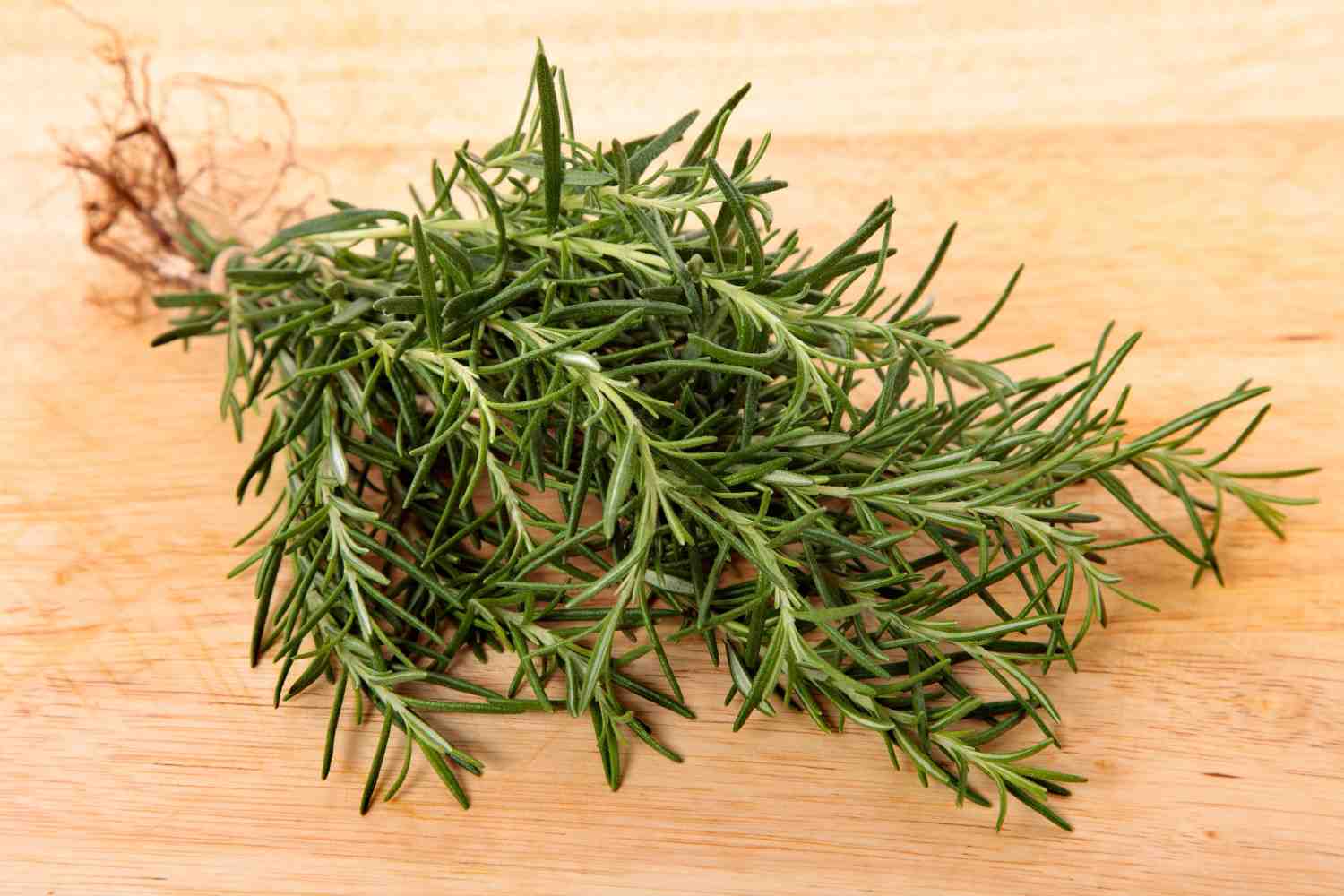Contents
5 Herbal Remedies Featuring Rosemary for Gut Healing
Did you know that the ancient Greeks considered rosemary a symbol of remembrance? They believed it could enhance memory and concentration, but it turns out that this aromatic herb might have more to offer—especially when it comes to gut health. That’s right! Rosemary isn’t just a flavorful addition to your meals; it could also be a powerful ally for your digestive system. Let’s dive into five herbal remedies that highlight rosemary’s potential for gut healing.
1. Rosemary-Infused Herbal Tea
Why It Works:
Rosemary tea is more than just a soothing beverage; it can help improve digestion and reduce bloating. The essential oils in rosemary contain compounds like rosmarinic acid, which have been shown to have anti-inflammatory and antioxidant effects. These properties can help support gut health by reducing inflammation in the digestive tract.
How to Make It:
- Ingredients: Fresh rosemary leaves (about a tablespoon), water, and honey (optional).
- Instructions:
- Bring water to a boil.
- Add rosemary leaves and let it steep for about 5-10 minutes.
- Strain the leaves, add honey if desired, and enjoy!
Pros and Cons:
- Pros: Easy to prepare, flavorful, and can be enjoyed hot or iced.
- Cons: May not be suitable for everyone, particularly those with rosemary allergies or certain gastrointestinal conditions.
2. Rosemary Essential Oil for Aromatherapy
Why It Works:
Aromatherapy is a powerful tool for overall well-being, and rosemary essential oil can play a significant role in gut health as well. Inhaling rosemary oil has been associated with reduced stress and improved mood, both of which are vital for digestive health. Stress can significantly impact gut function, leading to issues like indigestion or irritable bowel syndrome (IBS).
How to Use It:
- Diffusion: Add a few drops to an essential oil diffuser.
- Direct Inhalation: Place a drop on your palm, rub them together, and inhale.
- Topical Application: Mix with a carrier oil and massage onto the abdomen.
Pros and Cons:
- Pros: Quick to use, can be calming, and helps reduce stress-related gut issues.
- Cons: Essential oils must be diluted for topical use, and some people may be sensitive to strong scents.
3. Rosemary-Infused Olive Oil
Why It Works:
Using rosemary-infused olive oil not only adds flavor but also introduces beneficial compounds into your meals. Olive oil is known for its healthy fats, which support a healthy gut lining, while rosemary adds its own anti-inflammatory benefits. This combination is excellent for maintaining a balanced gut microbiome.
How to Prepare:
- Ingredients: Fresh rosemary, good-quality olive oil.
- Instructions:
- Place rosemary sprigs in a clean glass bottle.
- Pour olive oil over the rosemary, filling the bottle.
- Seal and let it sit in a dark, cool place for about a week to infuse.
Usage: Drizzle on salads, vegetables, or use it as a dip for bread.
Pros and Cons:
- Pros: Versatile for cooking, enhances flavors, and provides health benefits.
- Cons: Fresh rosemary can spoil, so it’s best used within a month.
4. Rosemary and Ginger Smoothie
Why It Works:
Ginger is another herb known for its digestive benefits. Combining ginger with rosemary in a smoothie can create a gut-soothing powerhouse. Ginger helps alleviate nausea and promotes digestive health, while rosemary provides its own array of benefits.
How to Make It:
- Ingredients: 1 cup almond milk, 1 tablespoon fresh rosemary, 1 teaspoon fresh ginger (grated), 1 banana, honey (optional).
- Instructions:
- Blend all ingredients until smooth.
- Adjust sweetness with honey if desired.
Pros and Cons:
- Pros: Nutritious, refreshing, and easy to make.
- Cons: Not everyone may enjoy the flavor combination, and ginger can be spicy for some.
5. Rosemary-Infused Vinegar
Why It Works:
Vinegar, particularly apple cider vinegar, is popular for its digestive benefits, such as improving gut acidity and promoting healthy digestion. Rosemary-infused vinegar can enhance these benefits while adding a delightful flavor to dressings and marinades.
How to Make It:
- Ingredients: 1 cup apple cider vinegar, a handful of fresh rosemary.
- Instructions:
- Place rosemary in a glass jar and pour vinegar over it.
- Seal the jar and let it infuse in a cool, dark place for about two weeks.
Usage: Use in salad dressings or as a tangy addition to dishes.
Pros and Cons:
- Pros: Easy to make, adds flavor, and can aid digestion.
- Cons: Some people may find vinegar too harsh on the palate.
FAQs
1. Can rosemary help with digestive disorders?
Yes, rosemary has been shown to have anti-inflammatory properties that may benefit those with digestive disorders. However, it’s always best to consult a healthcare provider for specific conditions.
2. How often can I consume rosemary for gut health?
In moderation, rosemary can be consumed daily, whether through teas, oils, or culinary dishes. Just be mindful of any allergies or sensitivities.
3. Are there any side effects to using rosemary?
While rosemary is generally safe, excessive amounts can lead to gastrointestinal upset. If you’re on certain medications or have specific health conditions, consult your healthcare provider.
4. Is it safe to use rosemary essential oil on the skin?
Yes, but always dilute it with a carrier oil before applying it topically, as it can be potent. Test on a small skin area first to check for adverse reactions.
Conclusion
Rosemary isn’t just for your Thanksgiving turkey or Italian pasta; this herb offers a wealth of benefits for gut health. From its anti-inflammatory properties to its ability to reduce stress, rosemary serves as a functional food that can support your digestive system in various ways. Whether you choose to sip on rosemary tea, indulge in rosemary-infused olive oil, or whip up a ginger smoothie, incorporating this herb into your routine can be both enjoyable and beneficial.
So, next time you’re in the kitchen, don’t forget about rosemary! It’s more than just a culinary herb—it’s a potential ally for your gut health.
As always, keep in mind that everyone’s body is different. What works for one person might not work for another. That’s why it’s crucial to listen to your body and consult a healthcare provider before making significant changes to your health routine.
Disclaimer: This article is for educational purposes only and is not a substitute for professional medical advice. Always consult a qualified healthcare provider before making changes to your health routine.
References
-
Dapkevicius, A., Venskutonis, P. R., van Beek, T. A., & Lückstädt, J. (2005). Antioxidant properties of the extracts of rosemary leaves (Rosmarinus officinalis L.). Food Chemistry, 91(2), 313-319. https://doi.org/10.1016/j.foodchem.2004.06.012
-
Hossain, M. B. (2014). Rosemary extract: A nutraceutical with potential health benefits. Journal of Nutritional Health & Food Engineering, 1(5), 1-5. https://doi.org/10.15406/jnhfe.2014.01.00025
-
Mayo Clinic. (n.d.). Digestive health. Retrieved from https://www.mayoclinic.org/healthy-lifestyle/nutrition-and-healthy-eating/in-depth/digestive-health/art-20045124
-
National Institutes of Health. (2016). Herbs at a glance: Rosemary. Retrieved from https://nccih.nih.gov/health/rosemary
-
Harvard Health Publishing. (2020). The health benefits of olive oil. Retrieved from https://www.health.harvard.edu/staying-healthy/the-health-benefits-of-olive-oil
Get Your FREE Natural Health Guide!
Subscribe now and receive our exclusive ebook packed with natural health tips, practical wellness advice, and easy lifestyle changes, delivered straight to your inbox.




